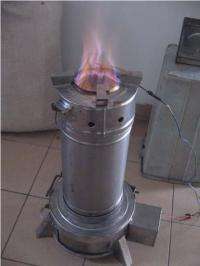Icelandic Postal Workers Go Above and Beyond When There is No Address - Just a Hand-Drawn Map
These tourists didn't have a name or address to send their Icelandic hosts a thank you card - but apparently, the postal service didn't need either.

As the primary cooking and heating tool for nearly three billion people, traditional cookstoves and open fires cause 1.9 million premature deaths worldwide each year.
They not only endanger the lives of women and children but with their billowing smoke, also rank as a major contributor to global warming.
Secretary of State Hillary Rodham Clinton today announced a new partnership that will create a global market for clean and efficient cooking stoves designed to save lives, improve livelihoods, protect trees, and cut global carbon emissions. She predicted, "Clean stoves could be as transformative as bed nets or vaccines."
The ultimate goal of the new "Global Alliance for Clean Cookstoves" will be getting the stoves into the hands of 100 million households by the year 2020.
The alliance, formed by the United Nations Foundation, a private-public partnership started by Ted Turner, was unveiled today at the Clinton Global Initiative's annual meeting.
The United States is providing about $50 million in seed money over five years for the project, known as . More than a dozen other partners, including governments, multilateral organizations and corporate sponsors, are to contribute an additional $10 million or more, reports the New York Times.
Low-emission biomass cookstoves have come of age recently and are ready to deploy in the developing world. The Alliance partners, including Morgan Stanley, will develop a business plan to address the prerequisites for large-scale adoption of the stoves into remote areas and identify strategies to elicit women's participation and market-based solutions that can sustain the program.
(READ the story in the NY Times)
Be the first to comment